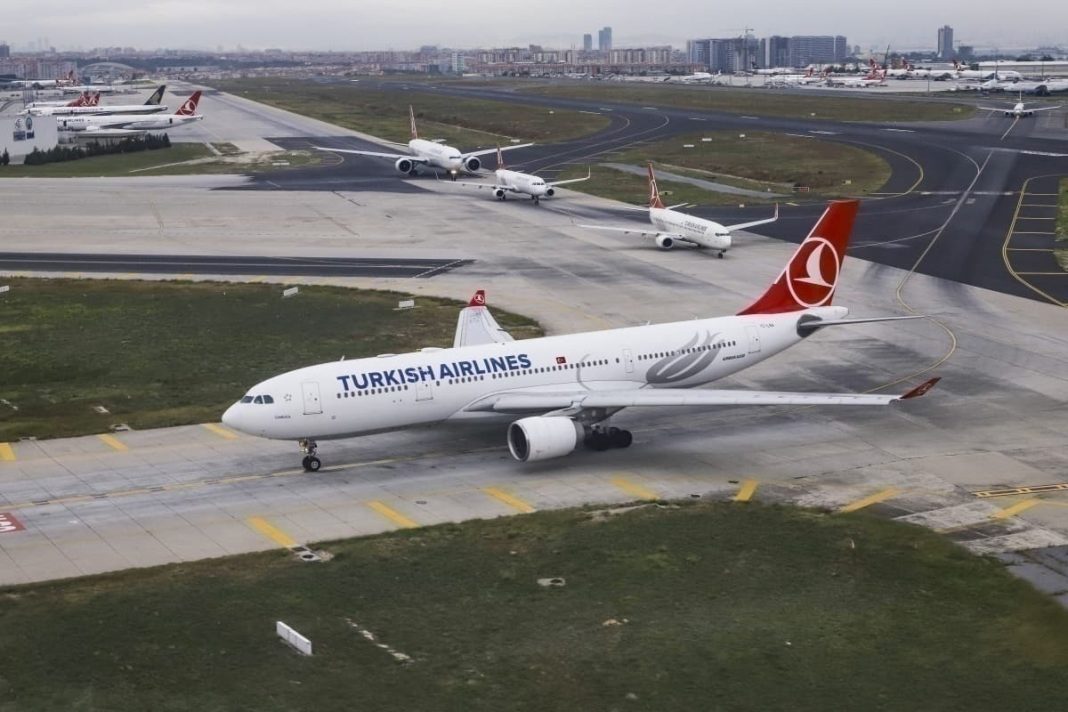Turkish Airlines and Air Serbia signed a fairly extensive codeshare agreement last week. The deal will see the two airlines share ticket sales on a total of 15 routes in Turkey, Serbia, Montenegro, and Bosnia and Herzegovina.

Turkish Airlines and Air Serbia are now partners
In a press release published last week, Air Serbia announced that it had signed a codeshare agreement with Turkish Airlines. This cooperation comes after several months of rumors in the local media in Serbia about a potential partnership between the two airlines, ever since Air Serbia launched flights from Belgrade to Istanbul in December 2019.
The Serbian flag carrier is one of only a few European airlines to serve Istanbul, despite strong competition from Turkish Airlines on the route. With this codeshare agreement, the competition has turned into a partnership.
Stay informed: Sign up for our daily aviation news digest.

15 routes, four countries
To begin with, the codeshare agreement between Air Serbia and Turkish Airlines will cover a single route only. Starting 15 August, Air Serbia and Turkish Airlines will each place their own flight codes on each other’s flights from Belgrade Nikola Tesla Airport to the new Istanbul Airport.
Then, in the “near future,” the codeshare agreement will expand to include more routes, across a total of four countries currently served by either Air Serbia or Turkish Airlines.
The destinations served by Turkish Airlines, which will soon also become part of Air Serbia’s network via this codeshare partnership, are:
- Ankara
- Kayseri
- İzmir
- Konya
- Adana
- Trabzon
- Antalya
- Gazipaşa
- Dalaman
- Bodrum
- Gaziantep
The destinations served by Air Serbia, and to which Turkish Airlines will gain access via a codeshare partnership, are:

A partnership beneficial for all
Jiri Marek, the General Manager Commercial and Strategy at Air Serbia, marked the occasion by saying,
“We are glad to have developed our cooperation with Turkish Airlines through this codeshare partnership, which will provide the passengers of both companies more choice and flexibility in organizing their travels. We are sure that this exciting and strategically very important partnership will improve the economic relations of our countries. We are delighted to have the opportunity to host Turkish Airlines passengers on our flights to Belgrade as well as to other Air Serbia’s destinations.”
For Air Serbia, the partnership will generate additional passenger traffic because its services will now become competitive in the transfer passenger market within the region. Recently, the Serbian national airline expanded its fleet with two Airbus A319 aircraft that formerly belonged to Adria Airways.
However, recently the airline also returned two aircraft, one Airbus A320 and one ATR72, upon lease agreement expiry. It is in the process of restructuring its debt with Etihad Airways Partners, so, despite the expansion, not all news coming from the airline is entirely positive.
Do you think Turkish Airlines and Air Serbia are likely to expand their partnership in the future? Let us know what you think of this story in the comments below.
[ad_2]
Source link


